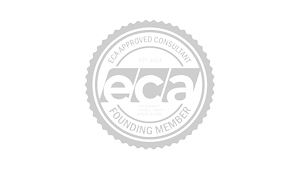In an era where cost-efficiency and sustainability are paramount, navigating the complexities of energy procurement presents a unique challenge for many companies. As businesses strive to optimise their operations and reduce overheads, the intricate dance of managing energy consumption and costs becomes increasingly critical.
This delicate balance not only impacts the bottom line but also reflects a company’s commitment to environmental stewardship. With a deep understanding of these nuances, this article aims to shed light on how energy procurement audit services can unlock potential savings and drive strategic advantage, ensuring your organisation is not only cost-efficient but also environmentally conscious.
Addressing the concerns of rising energy costs and the pressing need for sustainable operations requires a nuanced approach. By focusing on the specific needs of businesses grappling with these issues, we delve into the benefits of conducting an energy procurement audit.
From uncovering hidden inefficiencies to aligning energy strategies with broader business objectives, the insights gained promise to empower companies to make informed decisions. As we explore how to leverage these audits for both immediate and long-term gains, we invite you to continue reading, confident that the guidance offered will illuminate the path to optimising your energy procurement strategy.
Key Takeaways
- Energy procurement audits can help companies identify wasted energy and unnecessary expenses, leading to cost savings.
- These audits promote a greener business model and help reduce the company’s environmental footprint.
- Energy procurement audits ensure regulatory compliance and mitigate risks, avoiding fines and legal issues.
- By optimising energy consumption and identifying areas for improvement, energy procurement audits support long-term growth opportunities for companies.
Benefits of Energy Procurement Audits
Energy procurement audits offer numerous benefits to businesses. These benefits include cost savings, environmental impact, regulatory compliance, risk mitigation, and long-term growth.
By conducting regular audits, companies can identify wasted energy and unnecessary expenses, leading to significant cost savings.
Furthermore, promoting a greener business model through energy procurement audits can reduce a company’s carbon footprint and contribute to environmental sustainability.
In addition to cost savings and environmental impact, energy procurement audits also help businesses ensure regulatory compliance.
By staying ahead of mandatory reporting schemes and avoiding non-compliance fines, companies can maintain a positive reputation and avoid potential legal issues.
These audits provide companies with transparency and assurance, allowing them to develop effective risk mitigation strategies and improve their brand reputation.
Moreover, energy procurement audits contribute to long-term growth.
By identifying energy efficiency opportunities and implementing best practices, businesses can optimise their energy consumption, reduce costs, and enhance their competitive advantage.
These audits also help companies prepare for future growth by ensuring compliance with evolving energy regulations and mitigating potential risks.
Importance of Auditing Energy Procurement
By understanding the importance of auditing energy procurement, businesses can effectively optimise their operations and enhance their overall sustainability efforts. Energy procurement analysis plays a crucial role in identifying opportunities for cost optimisation and reducing unnecessary expenses. Through regular audits, businesses can identify areas of energy waste and implement strategies to increase energy efficiency, leading to significant cost savings.
Auditing energy procurement also promotes a greener business model and reduces the organisation’s environmental footprint. By identifying energy-saving measures and upgrading appliances and technology, businesses can reduce their energy consumption and contribute to a more sustainable future.
Furthermore, regular energy audits help businesses stay compliant with energy and carbon reporting schemes, avoiding non-compliance fines. By monitoring and controlling energy consumption, businesses can mitigate risks and improve their overall business strategy. This not only ensures regulatory compliance but also supports future growth by identifying areas for improvement and implementing energy-saving measures.
Key Components of Energy Procurement Audits
When conducting an energy procurement audit, it is important to consider key components such as the audit process overview, cost-saving strategies, and supplier contract analysis.
The audit process overview provides a framework for assessing the energy procurement practices and identifying areas for improvement.
Cost-saving strategies help identify opportunities to reduce energy costs and improve efficiency.
Supplier contract analysis ensures that contractual obligations are being met and favourable terms are negotiated.
Audit Process Overview
In order to ensure a comprehensive and effective energy procurement audit, it is essential to understand the key components of the audit process.
The audit process overview includes:
- Energy usage analysis: This involves analysing the energy consumption patterns and identifying areas of high energy usage and wastage.
- Energy consumption optimisation: This component focuses on finding ways to optimise energy consumption by implementing energy-efficient technologies, upgrading appliances, and utilising smart metering and building management systems.
- Proactive energy management: Regular audits help in proactively managing energy usage and identifying opportunities for cost savings and efficiency improvements.
- Environmental impact reduction: Energy audits promote a greener business model by reducing the environmental footprint through energy efficiency measures.
Cost-Saving Strategies
To effectively implement cost-saving strategies in energy procurement audits, businesses can capitalise on the key components outlined in the previous discussion.
By identifying wasted energy, companies can reduce energy consumption and optimise financial resources.
Upgrading technology to more energy-efficient appliances and systems can further enhance energy efficiency and minimise unnecessary expenses.
Smart metering and real-time monitoring provide businesses with the tools to analyse and control energy consumption, enabling proactive cost-saving measures.
Additionally, energy audits promote a greener business model, reducing environmental impact and aligning with sustainability goals.
Furthermore, ensuring regulatory compliance and mitigating risks through energy audits can enhance long-term financial optimisation.
Supplier Contract Analysis
Supplier contract analysis is a crucial component of energy procurement audits, as it involves reviewing and identifying key elements within energy procurement contracts. By conducting a thorough analysis of supplier contracts, companies can reduce risks and optimise their contracts for maximum cost savings.
Here are the key components of supplier contract analysis:
- Understanding contract terms, pricing structures, and clauses: This helps companies negotiate favourable terms and pricing, ensuring cost-effectiveness.
- Examining contract duration, renewal options, and termination clauses: This allows for flexibility and the ability to adapt to changing market conditions.
- Identifying performance metrics, billing accuracy, and penalties: This helps assess supplier reliability and ensures accountability.
- Analysing contract compliance with regulatory requirements and industry standards: This ensures legal and operational alignment.
Through supplier contract analysis, companies can identify opportunities for improvement, negotiate better terms, and mitigate risks, ultimately optimising their energy procurement contracts.
How Energy Procurement Audits Optimise Costs
Energy procurement audits play a crucial role in optimising costs for businesses.
By implementing cost-saving strategies and efficiency improvements, these audits help identify areas where wastage can be reduced and energy consumption can be optimised.
This not only leads to immediate cost savings but also promotes a more sustainable and environmentally friendly business model in the long term.
Cost-Saving Strategies
Implementing cost-saving strategies through energy procurement audits can significantly optimise overall expenses.
By conducting energy audits, businesses can identify areas of wasted energy and take necessary steps to reduce expenses.
Upgrading appliances and technology to more energy-efficient options can also result in significant cost savings.
Smart metering provides the ability to analyze and control energy consumption, allowing for better financial optimisation.
Additionally, building management systems enable real-time monitoring and control, contributing to cost-saving strategies.
Proactive energy management through audits saves both time and money, ensuring that businesses are maximising their financial resources.
With the help of energy procurement audits, companies can implement these cost-saving strategies and achieve greater efficiency and financial optimisation.
Efficiency Improvements
Efficiency improvements achieved through energy procurement audits have the potential to significantly optimise costs and enhance overall financial performance.
Energy audits provide valuable insights into energy consumption patterns and identify areas of wastage.
By upgrading appliances and technology based on audit findings, companies can increase energy efficiency and reduce unnecessary expenses.
Furthermore, the implementation of smart metering and building management systems enables real-time monitoring, control, and proactive energy management.
Through these energy management strategies, businesses can mitigate risks, improve their business strategy, and gain transparency and control over consumption and costs.
In addition to immediate cost savings, energy conservation and efficiency measures also result in long-term benefits, such as reduced carbon footprint and compliance with future legislation.
Enhancing Sustainability Through Energy Procurement Audits
Enhancing sustainability through energy procurement audits allows businesses to optimise their energy usage and reduce their environmental impact. By conducting regular audits, companies can identify areas of inefficiency and implement strategies to improve their energy procurement practices. Here are four ways in which energy procurement audits can enhance sustainability:
- Cost savings: Energy audits help identify wasted energy and unnecessary expenses, allowing businesses to make informed decisions about energy procurement. By optimising energy usage, companies can reduce costs and improve their overall financial performance.
- Increased energy efficiency: Upgrading appliances and technology can significantly increase energy efficiency. Additionally, smart metering and building management systems enable real-time monitoring and control, ensuring that energy is used efficiently.
- Greener business model: Energy audits promote a greener business model by reducing environmental footprint. By identifying and addressing areas of energy waste, companies can minimise their carbon emissions and contribute to a more sustainable future.
- Compliance and investor support: Regular audits help businesses stay compliant with reporting schemes, avoiding non-compliance fines. Moreover, mitigating risks through energy audits is crucial for future growth and securing funding. Green and efficient businesses are more likely to receive investor support, as sustainability becomes a critical factor in investment decisions.
As energy procurement trends continue to evolve, businesses must adapt to meet the challenges of the future. Energy procurement audits provide a valuable tool for enhancing sustainability and positioning companies as leaders in a rapidly changing energy landscape.
Maximising Efficiency With Energy Procurement Audits
To further optimise energy usage and achieve maximum efficiency, businesses can leverage energy procurement audits as a strategic tool. Energy procurement audits offer a range of benefits that can help companies identify areas of improvement and implement effective energy management strategies. By conducting these audits, businesses can identify wasted energy and unnecessary expenses, leading to cost savings and increased efficiency.
The energy procurement audit process involves a comprehensive analysis of energy usage, equipment, and systems within a company. This analysis helps identify areas where energy efficiency can be improved, such as upgrading appliances and technology to enhance energy efficiency and reduce environmental footprint. Additionally, implementing smart metering and building management systems enables real-time monitoring, control, and proactive energy management.


















